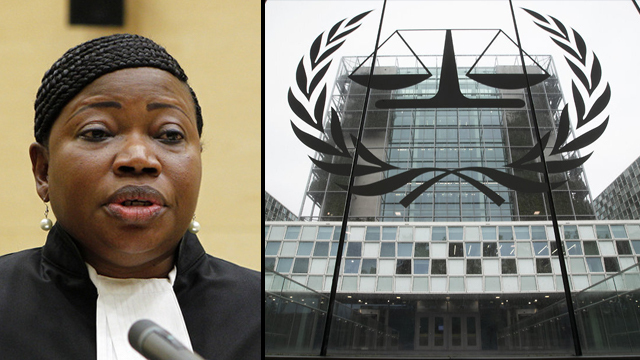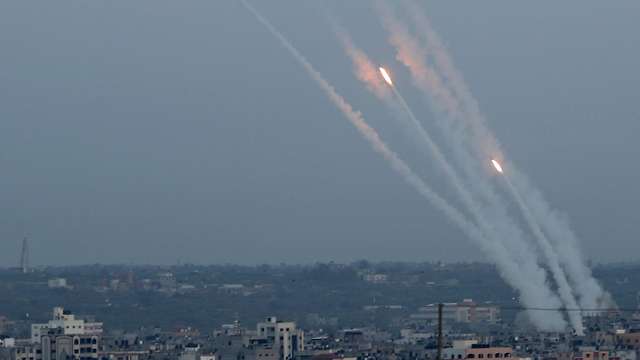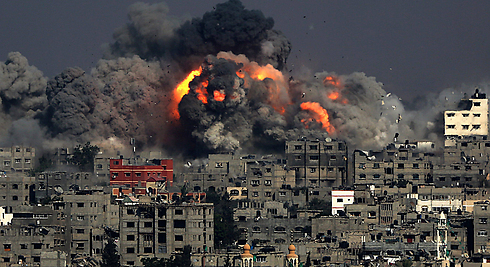Getting your Trinity Audio player ready...
The outgoing chief prosecutor of the International Criminal Court Fatou Bensouda said Wednesday that her office will open a formal investigation into war crimes in the West Bank and Gaza Strip during a period beginning June 13, 2014, just three weeks before the start of the 2014 Gaza war between Hamas and Israel.
"The decision to open an investigation followed a painstaking preliminary examination undertaken by my office that lasted close to five years," said Bensouda, who leaves office in June, in a statement published on the ICC website.
She said the probe would be conducted "independently, impartially and objectively, without fear or favor."
3 View gallery


ICC Chief Prosecutor Fatou Bensouda, left, and the International Criminal Court at The Hague
(Photo: AP)
"In the end," Bensouda said, "our central concern must be for the victims of crimes, both Palestinian and Israeli, arising from the long cycle of violence and insecurity that has caused deep suffering and despair on all sides."
Bensouda said how prosecutors prioritize their work will be "determined in due time" based on constraints including the coronavirus pandemic, limited resources and their existing heavy workload.
"Such challenges, however, as daunting and complex as they are, cannot divert us from ultimately discharging the responsibilities that the Rome Statute places upon the Office," she said, referring to the court's founding treaty.
The prosecutor said in 2019 there was a "reasonable basis" to open a war crimes probe into Israeli military actions in the Gaza Strip as well as Israeli settlement activity in the West Bank.
Following that assessment, she asked judges to rule on the extent of the court's jurisdiction in the troubled region. They did that last month, saying that the court's jurisdiction extends to territories occupied by Israel in the 1967 Six-Day War, namely the West Bank, Gaza and East Jerusalem.
The ICC could also potentially investigate crimes committed by Palestinian terror groups, including rockets strikes on Israeli civilian targets by Hamas and other groups in Gaza.
The Palestinians joined the court in 2015 and have long pushed for an investigation of Israel, which is not a member of the court, over actions during the 2014 war and settlement construction in the West Bank and East Jerusalem.
Israeli officials have previously accused the court of overstepping its bounds, saying Israel has been unfairly singled out. They reject the allegations, saying military actions in Gaza were acts of self-defense and the status of the West Bank is disputed and must be resolved through negotiations.
While the court would have a hard time prosecuting Israelis, it could issue arrest warrants that would make it difficult for Israeli officials to travel abroad.
Israel estimates that hundreds of its citizens might be subject to war crimes probes and is working on how to protect them, Defense Minister Benny Gantz said last month.
Including himself among Israelis who could be threatened with arrest, the former IDF chief said: "I was never afraid to go across enemy lines, I will continue to stand wherever I have to."
The ICC in February rejected Prime Minister Benjamin Netanyahu's claims that the decision to investigate Israel for war crimes proved that the court is politically biased.
"This is not a political decision. The court is an independent and impartial judicial institution that is critical to ensuring responsibility for the most serious crimes under international law," said the court in a statement.



